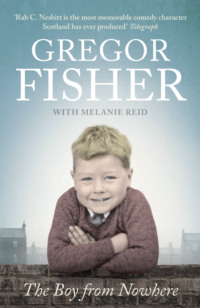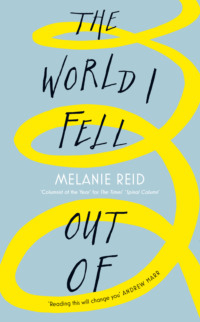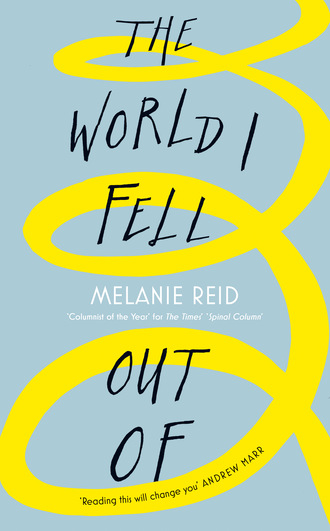
Полная версия
The World I Fell Out Of
In the far corner of the room was a mysterious patient who never got up: she was ensconced in a vast, high, warm sand bed, the size of a car, which shifted and vibrated constantly to heal long-term pressure sores. The bed, with its noise and warmth, had a strong presence of its own. Its occupant, an older woman, did not interact with us. Apparently her spinal injury was not new, but she had been unable to look after her skin for some years, and had developed a sore so bad she had been brought back in. Plates. The warnings resonated.
As a rule, the higher the neck injury, the more one’s hands were impacted. So every morning at 11 a.m., after our previous joyous two hours on shower chairs, us high spinal cord injury patients – the young, the old, the sporty; you might call us an elite of misfortune – congregated in the manner of elderly tortoises around the hand therapy table in our wheelchairs. Most of us wore the same severely restrictive collars, making us even more tortoise-like, so we greeted each other without full eye contact, nodding and squinting at midair, and then taking our places, waiting for our pots of hand putty to arrive. It resembled an early learning centre, but we were far more placid than toddlers. Left in peace long enough we would start to snooze, our heads drooping onto our collars.
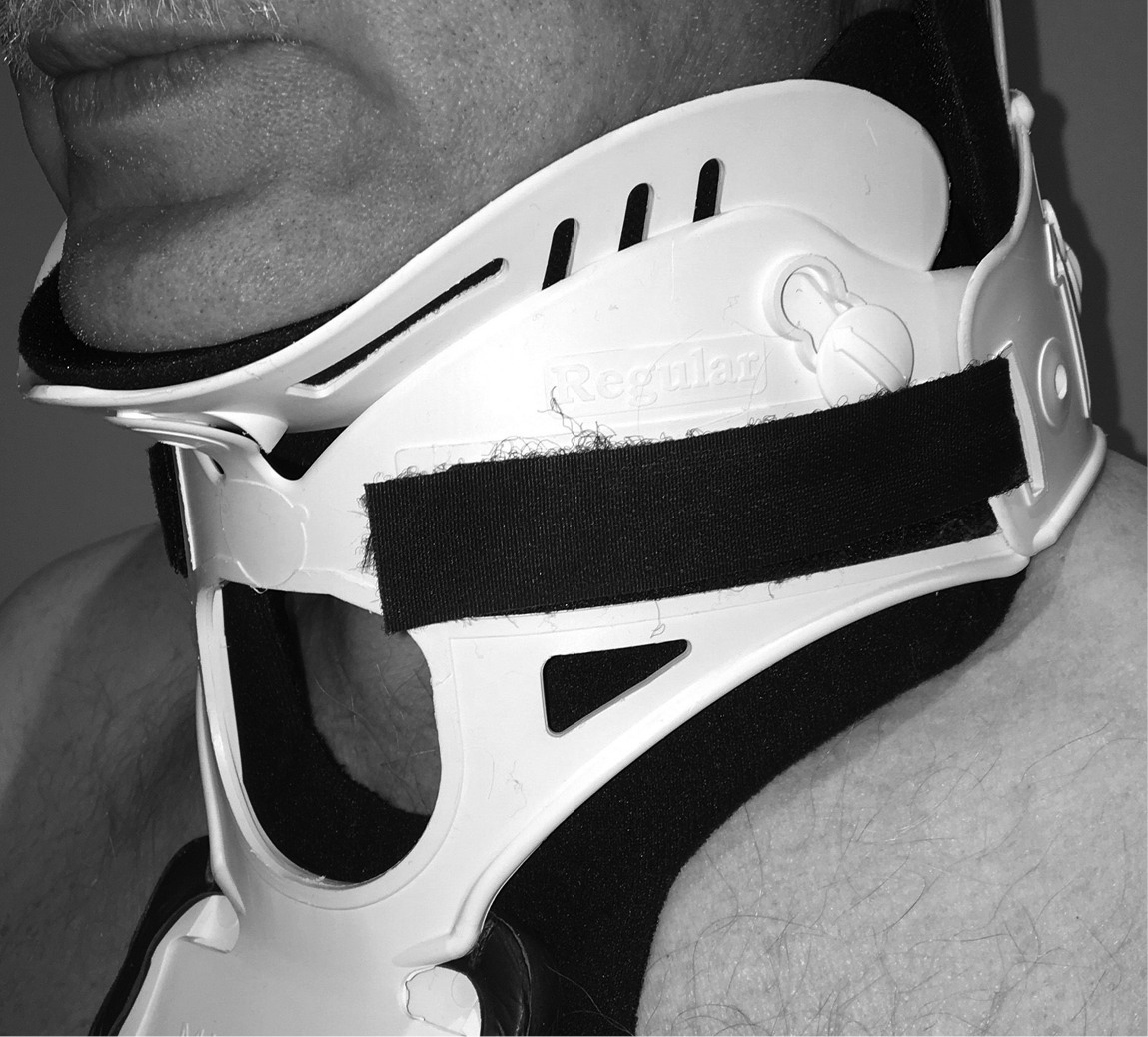
The Miami J spinal collar, a thing of claustrophobic torture, smelling of sour milk, and worn every minute of the day for three months. That’s not me modelling it, that’s one of my mates from the spinal unit. Looking only a little bit porny.
There was Karen, wry and cheerful as ever, learning to hold her mascara brush. And Nevis, a high-flyer businessman who’d broken his neck ski-mountaineering, a silent man with the most harrowing thousand-yard stare I witnessed on anyone in the unit. Hand therapy was a misnomer for him: his hands were lifeless. Instead his arms were put in slings suspended on metal stands, the kind used to hang saline drips from, and he was trying to move his shoulders enough to be able to make them swing. If he could get enough motion, his insensate fists would brush hard enough across the pages of a magazine to turn them. The Professor was an elderly scientist who had been pulled over by his dog while out walking and broken his neck; he told whimsical, erudite stories and charmed everyone.
We had some laughs, most in very bad taste. Joker was a serial offender with velvet brown eyes and winsome long eyelashes who had broken his neck falling through a roof. He was one of the brightest people in the unit, subversive in a way that challenged common perspectives. He just didn’t care about anything or anyone. He said he quite liked having a broken neck because it meant that he got looked after.
‘I’ve been in Y— [a young offender’s institution] thirty-seven times,’ he announced one day, sitting opposite me and flapping his elbows for balance as he reached up to try to rearrange an abacus.
‘Ooo,’ I said. ‘What for?’ My tongue was sticking out with concentration. I was doing my best to play Chinese chequers with rubber bands around the wooden pegs for grip.
He looked pityingly at me, across our different worlds.
‘Stealing cars.’
I found him fascinating. He told me the best makes to steal and how easy it was. He said it had been fun for a while but then it got boring and he didn’t like being on the streets, so he would steal a car deliberately to get caught, knowing it meant a warm bed and hot food. I always feared he would take his own life when he left the unit, but in fact, with proper care in place for him and a new sense of being valued, he forged a career online.
Joker had about a year’s seniority on Kindle, another of my contemporaries, a brilliant schoolboy whose parents’ car had skidded on black ice. Kindle did his Highers, the Scottish equivalent of A levels, in the unit and went on to Oxbridge. He carried a tablet in his sweatshirt, and read compulsively, even on the standing frames. Both young men broke my heart: just boys at the start of their adult lives, making the best of the cards they had been dealt, from different ends of the pack.
And so we gathered every weekday morning round the white melamine tables, and while those with no movement in their hands were put into arm slings, those of us with semi-viable hands had to start on our own personal lumps of hard, blue putty. This was our warm-up kit – we must mould and squeeze and grip and shape the putty, flatten and separate it into tiny balls and roll it into long sausages, all the while strengthening and suppling our hands. Cars droned past on the arterial city road outside, and the wider world was turning, but in our bewildering new pre-school this was the only task which must concern us. Here I was, I reflected, former mistress of my universe, member of the chattering classes, mover, shaker and regularly responsible for editing a national newspaper, here I was struggling to cope with playdough. It required astounding effort. At the end of the exercise you returned the putty to a big round ball, which you pressed into the table with the heel of your hand. Then you sat and panted for five minutes, wiped out by the effort required.
My hands were more damaged than I liked to admit. Both were very numb. The left, in the beginning, badly swollen, flopped heavy and useless on the end of my wrist. I clocked myself in the face with it several times. My right, although fairly normal-looking, with a relative range of movement, had almost no power at all. My grip was gone. But the hand therapists, positive, cheery people, kept at us. The nicest times were when they took our hands and smoothed and massaged them within their own, so warm and active and normal. Leslie the senior therapist would take my hands, grotesquely white and crusty with dead skin, and soak them in a basin of warm water for ten minutes, and then scour off vast amounts of lizard-like scales with a coarse NHS towel. The result was extraordinary – the palms and the fingers felt liberated and free to move again. Then there were more tasks to fulfil: Connect4 to complete, tiny plastic cones to be lifted onto other cones; hoops to be taken off one peg and placed upon another. One fiendish challenge was a tall wooden stick, a tree with pegs instead of branches, upon which we were to hook discs with corresponding peg-sized holes – the sort of thing a bright three-year-old would manage in seconds. Actually, a two-year-old. First we had to reach up and hang the pegs on the top branches. Then, try and lift them off. Trying to balance my torso, extend my arms above my shoulders and grip, simultaneously, took me to my physical limits. If I managed, I was left exhausted but ridiculously pleased with myself. I saw the same sense of elation on the faces of my fellow patients. This was like climbing Everest for us.
My frequent challenge was a game for children aged five plus using a pair of tweezers to lift tiny coloured balls of plastic, 1970s love beads, and place them on equally tiny pegs. With enough concentration, to my amazement, the thumb and middle finger of my right found the infinitesimal amount of squeeze needed to do this. I even managed a few with my left hand as well. I glowed with the achievement.
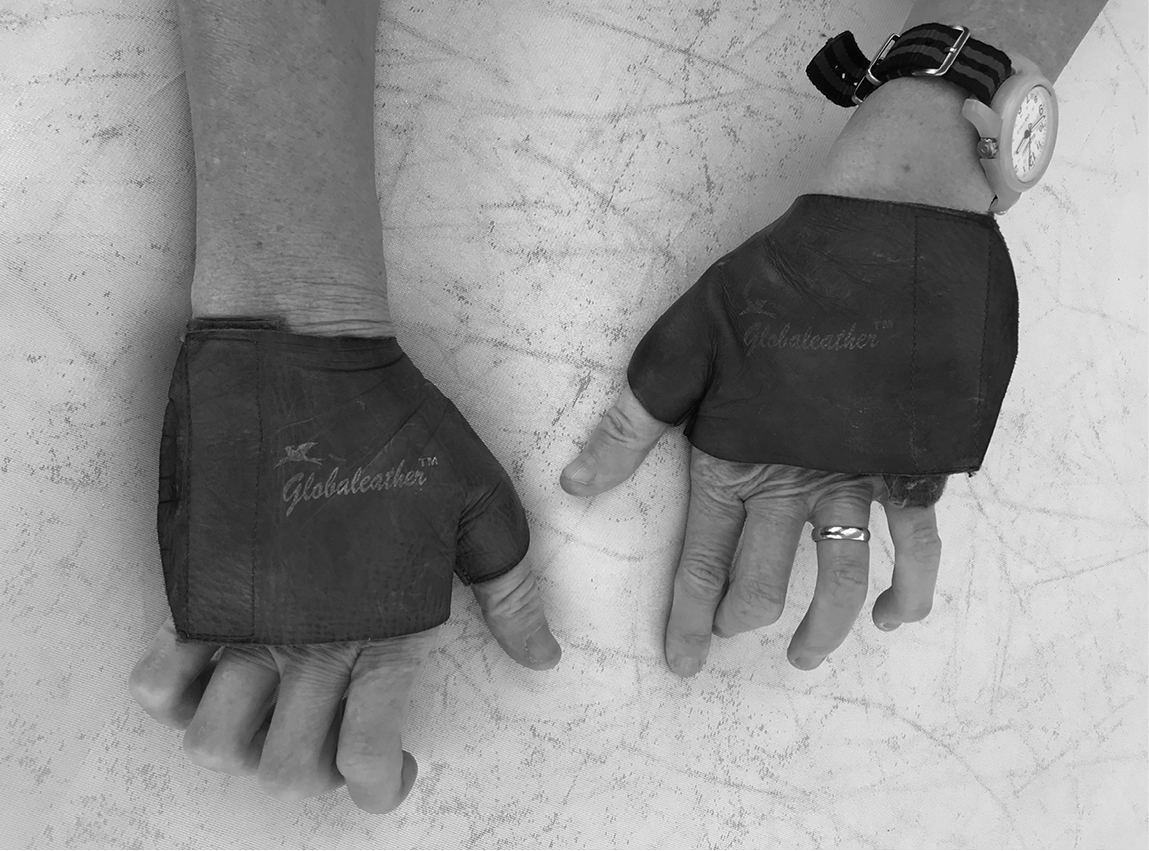
My distorted hands in leather pushing gloves. This is after the swelling went down. My fingers soon froze in this shape.
Frequently we had FES – functional electrical stimulation. Electrodes on our wrists, wired to a battery unit, sent pulses which made our fingers lift and straighten. And strengthen. The electric pulses replicated the nerves which had been destroyed. The effects were remarkable. Leslie fantasised about putting newly spinally injured people in all-over FES suits, to kick-start everything. She focused heavily on making my left wrist flex upwards. This, I was to learn, was critical to my future.
Oxbow the ecologist had been cycling to work when his front wheel hit a pothole and he broke his neck. He could hardly move anything; his elbows were supported in slings in hand therapy so that he could try and regain a scintilla of shoulder action and be able to work the joystick of a power wheelchair. Barnaby was an older man, a former ship’s officer, desperate only to learn to feed himself so he didn’t impose on his elderly wife. He had fallen at home. He would sit, his forearms in yet another kind of sling, waving with a spoon at a bowlful of apple segments. Occasionally he hooked one and got it as far as his mouth, and his face cracked open with satisfaction as he munched.
Stoical the businessman, who had slipped on ice crossing a supermarket car park and suffered cervical damage, had, like all of us, numb fingers. But his numbness was combined with painful hypersensitivity in his fingertips. Every single session he sat, like a man on a lifelong mission, methodically scouring away at them with gentle sandpaper, desensitising them. I envied him his calm.
Priceless was an older, educated woman, a tourist, who had fallen and damaged her neck after drinking a glass or three of wine. She could still walk and her injuries, compared to the rest of us, were about as bad as a summer cold, but she was oblivious to this. Her lack of self-awareness, common tact even, was breathtaking. Viewed through her eyes, her plight was monstrous – her holiday had been ruined and her elegant handwriting was affected. She demanded the hand therapists help her restore it; she complained loudly about the nurses on the ward who refused to help her wash and dress, the state of the food, and the fact she was in pain. She was one of the very few patients who didn’t either touch or amuse me; it took me several years to understand the truth that she embodied. Everyone’s handicap is relative. We are all entitled to our own perspective on how badly we are injured. What seemed trivial to some was life-changing to others, and vice versa. The ownership of that grief belonged entirely to her; that was her right. Its impact upon her was not for others to judge. At the time, though, I just wanted to tell her to open her eyes and look around at the rest of us. And if I’m honest, I still experience a similar stir of exasperation when I am corralled by some old dear who wants to tell me how bad her sciatica is. I have learnt to smile and nod, detach myself from judgement.
After a couple of weeks, the intensive hand therapy began to reap rewards. My left hand became less stone-like, and the thumb and fingers were starting to wiggle. The wrist grew strong enough to prevent it flopping. My right hand was definitely more powerful and I could grasp an old-fashioned phone receiver, something I couldn’t have done a fortnight ago. Dave and I managed our first telephone conversation, home to hospital, which made both our hearts sing. Eventually, in hand therapy, I even managed to open an envelope, a major victory. To do this, I had learnt how to use my teeth, my invaluable third hand from now.
Afternoon gym was also becoming less unfamiliar. I was starting to recognise faces and understand the rhythm of therapy. The gym was two large spaces linked by a glass divide, and equipped with about ten pale blue physiotherapy plinths, which raised and lowered electronically. To a layman’s eyes, the landscape was hard to interpret, more like a medieval torture chamber than anything. There were standing frames and tilt tables beribboned with heavy-duty Velcro straps to bring paralysed people upright, jutting pulleys for carrying arm and leg slings, hooks hanging from mesh cages suspended over more plinths, two sets of parallel bars, a conveyor-belted machine with robot legs and a harness suspended over it, and various arm and chest weight machines. Plus, splendidly, like a piece of modern art, half a car – a Fiat cut off in front of the windscreen, which was attached nose-in to the glass partition. That was for the future, for those of us who were able. We could learn to transfer into driver or passenger seats, practising for a life outside.
Everywhere I looked, I saw devices I could not understand but was desperate to try. My desire to get better was atavistic.
Resting on one of the plinths while my physiotherapist attended to another of her patients, I could observe fellow inhabitants who were learning to mobilise their bodies and cope with their new lives. I felt all of eleven years old, wide-eyed, evaluating my new classmates at the big school. Who would be a kindred spirit? Who would have a sense of humour? Swiftly you learnt who to seek out, who to avoid. Fetlock had also fallen off a horse; she’d had a close escape, was walking wounded and would be going home soon, but she wanted to tell me, in great detail, in the way only horsey people do, about every wisp of hay and variation of snaffle bit she had ever seen. I shrank inside myself when she walked – walked, damn her – over to me, and I could not escape, because I was not in my chair.
‘So what horses have you got? I’ve got three – my old mare and my young one – it was my young one that dumped me – and then there’s my pal Sheena’s pony, I have him too, but he pulls like mad and he’s a bugger to catch and keeps ripping his rugs and I have to soak his hay. Do you keep yours at livery?’
Like I’m going to keep any horse, ever again? Please go away, Fetlock. I don’t wish to be cruel, but don’t you realise that my dream has ended, that you’re shooting holes in my soul?
I smiled up at her, and made some anodyne reply. On a cruise ship, be tolerant. Keep your own counsel.
Wee Jimmy had been shot in the spine, for all sorts of alleged reasons. You never asked too many questions. Some said it was revenge for a murder by his uncle Tam-the-Hatchet. In that sense the unit was akin to a church, a place of sanctuary where you accepted people for their needs rather than their deeds. Jimmy was gangly, mild-mannered and wary. He had the air of someone faintly bewildered as to why the staff were being so nice to him and he tried hard in rehab. He gave everyone on the ward a slice of his birthday cake and when he left hospital he made the front page of the tabloid press. As well as their victims, every now and again you got criminals in the unit with broken spines. Big Willie, one of the physiotherapists, a benign sixteen-stone barn door of ex-rugby player, remarked that over the years he’d had several as patients but only realised it when he read about the court cases in the paper afterwards. One man was later convicted of organising a murder.
‘Honestly, you couldn’t have met a nicer guy,’ said Willie, shaking his head.
Mostly we were innocent, life’s fallen jesters. Cycling and sports injuries were common. Cog was a mountain biker from down south who’d gone over the handlebars on a boys’ biking weekend in Scotland. He was semi-dazed and nauseated by tramadol. I remembered its ghastly nausea-inducing and head-fugging qualities. Taking tramadol, you were in the world but not of it. Pretty soon Cog transferred back down south, still looking grey and confused.
Tourette was a middle-aged man who had had a stroke that damaged his speech, long before a car accident broke his back: he was in a wheelchair and came to the gym but could only shout ‘Fuck Off!’ or ‘Pish!’ Again, his ability to swear endured, although his brain had closed down more sophisticated speech circuitry. Tourette looked like Waldorf from the Muppets, his mouth set in a determined upside-down U. Despite appearances, he was very cheerful and seemed to enjoy amusing the rest of us by cursing inappropriately. Spatula, the chef who’d broken his back in a drug-addled suicide attempt off a cliff, befriended him, and the two of them sat outside and smoked, mostly in silence but for the cursing. Spatula could stand, and mobilise a little, and could have improved, but he stopped coming to the gym and the rules were strict. If you didn’t buy into rehab, you had to leave.
And then there was Grit, a former soldier, five-foot-two tall and as hard-boiled as a twenty-minute egg. I loved Grit. He possessed very little in the world but an outsize sense of decency; his flat in a Glasgow high-rise had been broken into and when he challenged the suspected culprits, they stabbed him. One knife wound pierced his spinal column and he was paralysed down one side. Grit had been treated with little sympathy by the police and had languished without expert care in another city hospital – just one more knife victim with the wrong post code – until a doctor had recognised the seriousness of his injury and got him transferred across the city to spinal. He couldn’t believe how well he was treated in this unit by comparison.
‘Night and fucking day, Mel,’ he told me. ‘They’re just fucking angels here, the nurses. The doctors listen to you. They just didn’t care in the last place. Not fucking interested.’
Grit and I were mates from the days of high dependency when we’d had beds in facing bays; I told him he’d be walking soon and so he was, within a month, so he took to calling me Crystal Balls. He had a lot of mates, hardmen like himself, who crowded round his bedside and told him how his football team was doing and discussed the people who’d stabbed him. They knew fine who’d done it.
‘Fucking terrible, sure it is. You should see what the dirty wee bastards are getting away with now.’
‘We’ll fucking get them for you, Grit, we will.’
Sometimes the crescendo of cursing got so bad that my husband, a man not unknown to swear himself, would turn his head and lift an eyebrow. Grit would clock it, and his natural courtesy would kick in.
‘Listen Dave, big Mel, ah’m sorry, ah cannae stop fucking swearing. Lads, tone it down. Stop fucking swearing so much. Youse are upsetting people.’
Weeks later, in the gym, when Grit was getting around, first on crutches, then a stick, he busied himself bringing cups of water from the cooler to those of us stuck on machines. One day I was strapped upright, my head at least twelve feet in the air, on a tilting table with a mechanism which moved your feet backwards and forwards – towering like some ghastly human sacrifice over everyone else in the gym. Grit, who couldn’t reach high enough to put the plastic cup of water in my hand, put down his stick and starting climbing up the frame to give me the water. Only one side of his body worked, and he was utterly precarious, but he made it up and down safely and glowed with paternalistic pride as he watched me.
‘Fucking brill, big Mel. Youse are doing great, Crystal Balls.’ In the land of the blind, the one-eyed man was king.
There were Buddhists, and poets from the Scottish islands, there were heroes and villains. There were several patients with old injuries, returned for treatment, whose voices we only really heard if the drugs trolley was a few minutes late, which it often was, and they would ring their buzzers crying for their methadone. Had their injuries made them opiate addicts? You could not ask, and no one would ever tell. Nor would judgement ever be passed. We mostly lived out our private lives in public, but we gathered into ourselves what scraps of dignity remained behind those grotty thin curtains, and kept some secrets. There was a policeman who had had his back broken by a getaway car; he often rehabbed on the plinth next to a stone-mason whose bungee jump had gone wrong and whose mum kept complaining about the quality of the food. Mrs Bennet, a school dinner lady, didn’t come to the gym often – hurt in a fall, she seemed to accept her fate with remarkable good grace, though I suspect it was partly to do with the amount of tramadol she took. She was not at all unkind, but very lazy, and liked to know everyone’s business. Had there been a God, she would have had several unmarried daughters, and an acerbic husband. And who could forget Passion, the Brazilian stallion, whose spinal operation had not been successful? He fretted very publicly about whether he would still be able to have sex and boasted that his body would be perfect again soon. Very swiftly he earned a reputation for commandeering the communal bathroom when his wife came to visit, presumably so he could check out whether things were really as bad as he feared. He was ignorant, and sexist, and thought nothing of making insulting remarks to female patients, me included, but I watched him on the parallel bars one day, straining to make his steps fluid, trying to convince himself he was winning, the beads of sweat glistening on his upper lip, and felt sorry for him. We were all in our own ways trying to kid ourselves.
So I began my rehabilitation, trying to ride that ghastly non-compliant new horse which was my body; a terrible physical challenge that bucked and threw me contemptuously, time and time and time again. They had given me a wheelchair with the brand name Quickie and in it I learnt a new definition of slowness. My nails grew faster than my progress down the corridor. Somehow I had to learn to exist again; my arms had to learn to support and move me; my hands, the fingers now tightening, clawing into stumps like decrepit Trafalgar Square pigeons, had to learn how to hold a kettle or a toothbrush and bear the pain of the push rims of the wheels on my palms. I was given thick leather mitts, which fastened with Velcro and were specially designed for easy use by tetraplegics, to protect the skin (see photo here). One day, trying to come back from the gym along the carpeted stretch of corridor – installed, sadistically but sensibly, to prepare us for real life – my arms gave up and the pile of the carpet steered me into the wall. I sat quietly weeping in frustration until a nurse took pity on me and pushed me off the carpet.
In the gym my routine was simple: arm exercises first – twenty minutes on the handbike, then biceps curls and triceps lifts on the weights machines. Then, hoisted onto the specialist plinths, I began the process of coping with the appendage formerly known as my body. Propped in a seated position, my feet on the floor, foam wedges behind me to catch me if I went backwards, I started to learn how to balance sitting upright. How peculiar it felt. Because I could not feel my backside in contact with the plinth; I had the sensation I was a head and shoulders poised on wobbly air. I swayed like a blancmange, only staying upright because I could grip the edge of the plinth with my crocked fingers and lean back on my arms.
Next, from the same seated position, as my left wrist strengthened and began to hurt less, I was told to place my hands beside me on the firm surface and try and lift myself. Impossible. But critical to the future. When your body is paralysed and you try to lift your own body weight solely with your unaccustomed arms, you cannot believe how hard it is. The movement starts in your brain with a huge heave and ends, if you’re lucky, in a flicker you barely perceive. The physios put a bench in front of my knees so that if I toppled forward, I would not go onto the floor. And there I sat, for perhaps forty minutes at a time, hands aching on the blue plastic, wobbling, tilting forward a little, bracing through my shoulders and arms, trying to heave. Did anything happen that time? I could only tell by peering down, trying to imagine a sensation of lightening. It was exhausting. And I couldn’t kid myself that I saw anything.
The gym had a radio, with notoriously bad reception, tuned by whichever member of staff got to it first in the morning. If Big Willie switched it on, we had Radio 2, because he was addicted to trivia and knew the answers on Pop Master. Margaret, the lovable, warm-hearted physio assistant, upon whose shoulder I often wept, preferred Smooth. And Susan, my own physio, a feisty rock-chick with a tongue stud and attitude, the woman who became the focus of my world, always went for Rock Radio. Somehow, as the weeks stretched onwards into summer, and the hours spent in the gym fused into one another, the only tune I can remember, throbbing fuzzily, flatly, over and over and over again, was ‘Heartbeat’ by Enrique Iglesias and Nicole Scherzinger. The more tinny and unmoving, the better, as far as I was concerned. Only in the gym could I bear music, where there was company and distraction. On my own radio, in the intimate surroundings of my own bed with an earpiece in, I never tuned to music stations. Only talk could I cope with. Current affairs. Hanging onto the familiar voices of the Radio 4 Today presenters, friends from my lost past, discussing current affairs that used to matter. When I was surprised by snatches of music or songs, especially those that meant something to me, the violence of my grief was overwhelming. Music released emotion. In order to stay strong, I had to shut it out.


